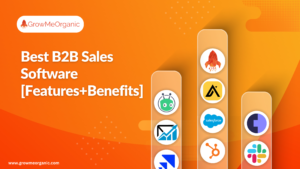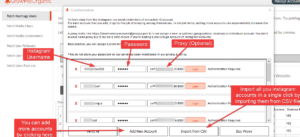At present, the software as a service (SaaS) market is predicted to be worth approximately $197 billion. By 2024, it’s forecasted to grow to $232 billion. This is clearly an industry that’s thriving at the moment.
But, what is SaaS? With a cloud-based service, you can access an application through your web browser rather than having to download and run software on your desktop PC or corporate network. Anything from office software to unified communications might be the program.
The way we use and pay for software has changed because of SaaS. And, it’s certainly had a massive impact on the e-commerce industry!
With low barriers to entry and mind-blowing reach, e-commerce presents huge opportunities. The industry allows anyone to start a business from the comfort of their own homes.
However, there are challenges to overcome, especially when you consider the growing threat of e-commerce fraud.
This is where SaaS comes in. So, let’s delve a bit deeper.
The Role of SaaS in E-commerce Entrepreneurship
SaaS means you don’t need to install and run software on individual computers.
This:
- Reduces overheads ✅
- Ensures automatic updates ✅
- Grants remote access ✅
For e-commerce entrepreneurs, this translates into flexibility, scalability, and efficiency.
How SaaS solutions streamline operations, improve efficiency, and reduce costs
With SaaS, you can bring a whole host of e-commerce functions into one unified system. This includes the likes of payment processing, inventory management, and customer relationship management. This helps you to automate manual tasks, reduce errors, and cut operational costs.
Let’s take a further look at how SaaS is revolutionizing the way businesses operate:
- Unified systems – Instead of juggling multiple software applications, you can bring all of your functions under one roof.
- Automation – SaaS applications often come equipped with tools to process automation in accounting. Automated invoicing, reminders, lead tracking, and order processing are just a few examples.
- Real-time analytics – From analyzing customer interactions to tracking inventory levels, you can make informed decisions quickly.
- Scalability and flexibility – As a business grows, so can its subscription. This flexibility means companies only pay for what they need, and they can adjust as those needs change.
- Maintenance and upgrades – You can make huge savings with SaaS. This is because the provider is responsible for maintaining the software, handling security updates, and rolling out new features – not you!
- Remote accessibility – Team members can access critical business systems from anywhere with an internet connection. This level of accessibility can lead to more flexible work environments, quicker responses, and a more connected, collaborative team through remote desktop access.
- Streamlined customer support – As everyone uses the same version of the software, customer support becomes much more straightforward.
SaaS Applications in E-commerce
Let’s explore some of these critical SaaS tools and what they offer:
E-commerce platforms and storefront solutions
E-commerce platforms act as the backbone of any online business. You can set up online stores with ease, leveraging built-in tools and integrations.
Solutions:
- Shopify
- BigCommerce
- Wix
- Magento
- WooCommerce
Features to expect:
- User-friendly store builders with drag-and-drop capabilities
- Integrated payment gateways for secure transaction processing
- SEO optimization tools for higher search engine visibility
- Mobile responsiveness ensures compatibility across devices
- Integration capabilities with other third-party tools and systems
Inventory management and order fulfillment
For an e-commerce venture, keeping track of inventory and ensuring timely, accurate order fulfillment is pivotal to maintaining customer satisfaction and operational efficiency. Moreover, you can leverage headless CMS platforms, a modern dynamic online shopping environment approach that enhances customer engagement, and ultimately drives sales and conversion rates.
Solutions:
- ShipBob
- Ordoro
- Cin7
- Zoho Inventory
- Stitch Labs
Features to expect:
- Real-time inventory tracking across multiple warehouses or stores
- Automated order processing to minimize human errors
- Integration with e-commerce platforms for seamless operations
- Demand forecasting based on sales trends
- Returns and refunds management systems
Customer relationship management (CRM) and customer support
This software enables you to personalize customer experiences, enhance support, and boost retention.
Solutions:
- Salesforce
- Zendesk
- HubSpot
- Freshdesk
- Pipedrive
Features to expect:
- Contact and interaction tracking for a 360-degree customer view
- Automated marketing campaigns based on customer behaviors
- Ticketing systems for organized customer support
- Analytical tools for tracking support performance and customer feedback
- Integration with social media for omnichannel support
Analytics and data-driven decision-making
Understanding customer behavior is pivotal for e-commerce businesses. Analytics tools provide insights into user interactions, which gives you the power to refine your strategies and make data-driven decisions.
Solutions:
- Google Analytics
- Mixpanel
- Kissmetrics
- Adobe Analytics
- Heap
Features to expect:
- User behavior tracking across web pages
- Conversion rate optimization tools
- Funnel visualization for understanding user journeys
- Segmentation capabilities for targeted analysis
- Integration with marketing and sales platforms for comprehensive insights
Ultimately, without these SaaS tools, e-commerce growth would not be possible! They not only address the complex challenges facing online stores but open doors to plenty of opportunities too.
Addressing E-commerce Credit Card Fraud with SaaS
E-commerce credit card fraud happens when an unauthorized person makes an online purchase using stolen credit card data.
This is a huge issue for e-commerce businesses! In fact, $41 billion was lost around the world last year due to online payment fraud. It’s expected that this figure will reach $48 billion by the end of the year.
And, of course, it’s not only monetary losses that businesses have to contend with. They also have to deal with a tarnished reputation, which has a severe impact on consumer trust.
How SaaS solutions enhance security and fraud prevention
Firstly, SaaS solutions tend to deploy advanced encryption techniques.
Encryption turns sensitive data into unreadable code. So, even if someone were to steal it, they wouldn’t be able to make sense of it.
Updates can be made in real time thanks to SaaS platforms. As soon as a vulnerability is spotted, it will be patched.
Another important feature is multi-factor authentication. This adds an extra security layer.
Rather than simply entering a password, you will need to complete at least one other security step to gain access to your account. For example, you may receive a code to your phone, which you need to input.
Furthermore, modern SaaS application development are leveraging AI and machine learning so they can recognize patterns and behaviors indicative of fraud.
Technology and Automation for Fraud Prevention
Businesses are making the most of AI and machine learning for fraud detection. This is because AI-driven SaaS solutions can analyze vast datasets so that they can learn patterns and flag anomalies that may indicate fraud.
You can also automate fraud monitoring. Your systems will be cloud monitored around the clock, with threats instantly flagged and addressed.
Businesses like Revolut and Mokka have integrated SaaS solutions, dramatically reducing their fraud rates and improving customer trust.
Entrepreneurial Benefits of SaaS Adoption
- Time and resource saving – Focus on your core business strategies! SaaS minimizes manual tasks, freeing entrepreneurs to focus on growth and strategy.
- Scalability and adaptability – SaaS gives you the flexibility to scale as and when needed. So, when demands change, you can adapt with ease. You don’t have to overhaul your systems.
- Reduce downtime and enhance customer trust – With reliable uptime and enhanced security, you can be sure everything will run smoothly at your business. Naturally, this will lead to improved customer trust.
Market trends and success stories
According to research from Oracle, 91% of businesses believe that SaaS will help them adopt AI and other emerging technologies.
We’ve seen many brands make the most of this. FIAT and Ticketing are prime examples. Both have reported decreased fraud rates and increased revenues.
Some market trends worth noting include:
- Hybrid solutions – Bringing cloud-based and on-premise applications together
- Vertical SaaS – Specialized tools for specific industries
- AI integration – Incorporating AI and machine learning
- Micro-SaaS – Niche, focused offerings
- Data privacy – Stronger focus on security and compliance
- Subscription innovation – New pricing models beyond traditional subscriptions
- Remote work tools – Collaboration and communication SaaS adoption
- Integration focus – Emphasis on seamless app integration
Challenges and considerations
Of course, SaaS brings huge benefits. However, integrating SaaS can pose challenges, so you do need to be aware of this. Legacy systems and specialized custom setups can be rather tricky.
Data breaches remain a concern. Yes, high-level encryption is deployed. Nevertheless, cybercriminals are getting more and more sophisticated, so we must evolve too.
Ultimately, you must weigh the cost of Saas solutions against potential ROI. Make sure that the investment aligns with your business objectives.
Future possibilities: Innovations in SaaS and e-commerce fraud prevention
Future SaaS platforms will be able to anticipate fraud attempts before they even happen. We also expect to see more solutions catering to niche markets, with a specialized set of features. SaaS has revolutionized e-commerce, offering scalable, flexible solutions for entrepreneurs. Software development companies in Europe are driving this transformation with innovative SaaS tools.
Partnerships will also emerge, with SaaS providers working closely with e-commerce businesses to create tailor-made solutions.
Final Words: Transforming E-commerce Entrepreneurship with Technology
SaaS has undeniably transformed e-commerce entrepreneurship, streamlining operations, and offering advanced solutions for pressing challenges.
E-commerce entrepreneurs should seize the SaaS revolution, leveraging the wide range of benefits, and ensuring sustainable, scalable, and secure business growth.
About Post Author
Anant Gupta
Growth Hacker, Marketing Automation Enthusiast & Founder of GrowMeOrganic


![Mailifier Review: Email Validator Checker Tool! [Lifetime Deal]](https://www.growmeorganic.com/wp-content/uploads/2024/07/mailifier-review-300x169.png)




